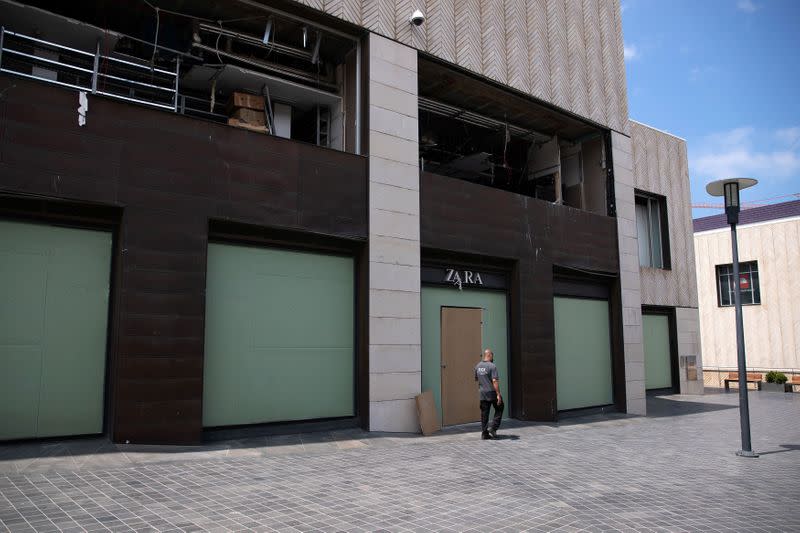Lebanon imposes new partial lockdown to fight COVID-19
BEIRUT (Reuters) - Lebanon imposed a partial lockdown for two weeks starting on Friday in an effort to counter COVID-19 infections which have doubled since the catastrophic explosion at the Beirut port.
The spread of COVID-19 is compounding the woes of a country still reeling from the Aug. 4 blast that killed at least 179 people and wounded 6,000, and a financial meltdown that has devastated the economy.
"In this area those who escaped death have relatives who are wounded, there are no homes or cars, frankly we have forgotten corona," said Nabil Nahed, 50, a teacher whose house in the Gemmayzeh area was badly damaged in the blast.
"But we have to take precautions as much as we can because in the last two weeks everyone has been mixing, and corona certainly increased," he said.
Lebanon recorded its highest number of new daily infections on Friday, with 628 new cases and three deaths. The infections have spread since the blast as hospitals were flooded with the casualties, medics say.
"We've gone back to square one," said the caretaker government's health minister on Friday, adding however that the government was better prepared than at the start of the pandemic.
Iman Shankiti, the World Health Organization representative in Lebanon, said the country was at a dangerous juncture.
"It took us six months since February to reach 5,000 total cases. But unfortunately during the last two weeks, we have doubled that figure - that's quite worrying," she told Reuters.
Although most cases are expected to be asymptomatic, there was an increase in those needing hospitalization, she said.
The shutdown, which includes a curfew from 6pm to 6am, allows for clearing rubble, making repairs and giving out aid in neighbourhoods demolished by the explosion. The airport will remain open, with travellers having to take a PCR test before boarding and on arrival.
In the hour following the curfew on Friday, shops were closed and police were seen ushering pedestrians along the seaside corniche. A security source said compliance was good in the Beirut area though less so in northern Lebanon.
(Reporting by Issam Abdallah and Raya Jalabi; Writing by Tom Perry and Raya Jalabi; Editing by Angus MacSwan and Giles Elgood)




